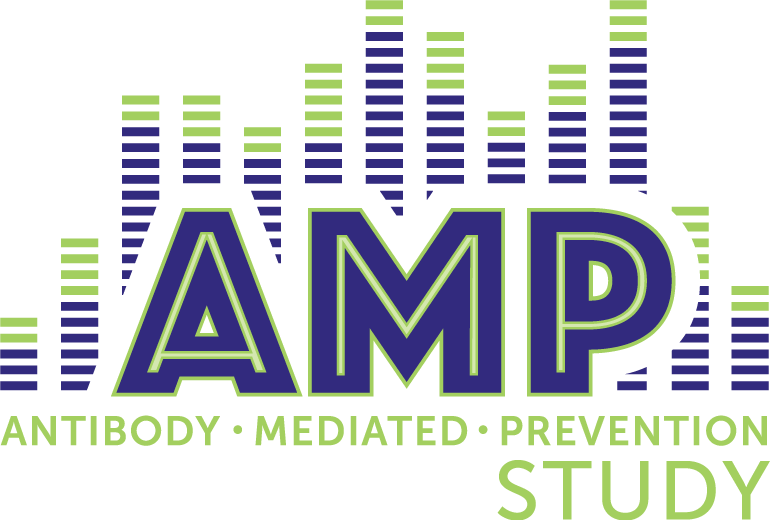
The AMP Study (also known as HVTN 704/HPTN 085) tests an experimental antibody against HIV. AMP stands for Antibody Mediated Prevention. This is the idea of giving people antibodies that fight HIV to see if they will protect people from becoming HIV infected.
The AMP study tests an antibody called VRC01, a manufactured antibody against HIV. This is a new idea for HIV prevention that is related to what has been done in HIV vaccine research. In traditional HIV vaccine studies, people get a vaccine and researchers wait to see if their bodies will make antibodies against HIV in response to the vaccine. In this study, we will skip that step, and give people the antibodies directly.
VRC01 will be given using intravenous infusions. This is more commonly known as getting an IV, or getting a drip. The IV is given to the study participant every eight weeks for 30-60 minutes. To get an IV, a sterile needle is used to place a small plastic tube into a vein in the participant’s arm. A bag of fluid is hung from a pole and connected to a pump, which controls how quickly the contents of the bag flow through the tube into the participant’s arm.
There will be 3 different groups in this study. One third of study participants will get a higher dose of the antibody in their IV. One third will get a lower dose of the antibody in their IV. One third will get an infusion of sterile salt water without any antibody in it. This is called a placebo. Participants will be enrolled in the study for about two years.
